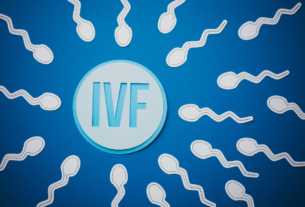Robert F. Kennedy Jr., now serving as Secretary of Health and Human Services, has announced the formation of a government panel to examine the childhood vaccine schedule. This decision comes despite previous assurances that no changes would be made. The announcement has reignited debate among medical experts and parents.
“We need transparency and accountability in public health decisions,” Kennedy said. The panel will investigate vaccine safety, effectiveness, and long-term effects. Federal health officials have not confirmed whether any policy changes will result from the review.
The Centers for Disease Control and Prevention (CDC) currently recommends vaccines for diseases like measles, polio, and hepatitis. These guidelines aim to prevent outbreaks and protect public health. Doctors warn that revising the schedule could lead to lower vaccination rates and a resurgence of preventable diseases.
Kennedy has long expressed skepticism about vaccine regulations. His appointment to lead HHS was met with concerns from medical organizations. Critics argue that questioning vaccine policies could undermine public trust and increase health risks.
The American Academy of Pediatrics strongly opposes any changes to the vaccine schedule. Experts emphasize that current recommendations are based on decades of research. They warn that altering the schedule could put children at unnecessary risk.
Public opinion on the review remains divided. Some parents support a reassessment of vaccine guidelines, citing concerns about government oversight. Others worry that misinformation will influence public health policies and lead to declining immunization rates.
Medical professionals stress the importance of childhood vaccinations. High immunization rates have successfully prevented deadly diseases for decades. Public health officials fear that raising doubts about vaccine safety could reverse this progress.
The review panel will include scientists, doctors, and policy experts. Members will analyze vaccine data, public health outcomes, and potential risks. The findings could shape future health policies and vaccination guidelines.
Some lawmakers have voiced strong opposition to the review. Critics argue that questioning vaccine safety without evidence is irresponsible. Supporters say independent evaluations can strengthen public confidence in health policies.
Vaccine mandates vary by state, with most schools requiring immunizations for enrollment. Kennedy’s panel could influence state and federal policy decisions. Health officials stress that vaccines are thoroughly tested and continuously monitored for safety.
The Food and Drug Administration (FDA) evaluates vaccines before approval and tracks potential side effects. Experts say the current schedule is designed to provide maximum protection at critical developmental stages.
Kennedy continues to focus on medical freedom and parental choice in healthcare decisions. He argues that families should have more control over vaccinations. Opponents maintain that public health policies should prioritize community safety over individual skepticism.
The panel is expected to release its findings next year. Health organizations will closely monitor the review’s impact on vaccination rates. The debate over vaccine policy remains a major issue in the Trump administration.




